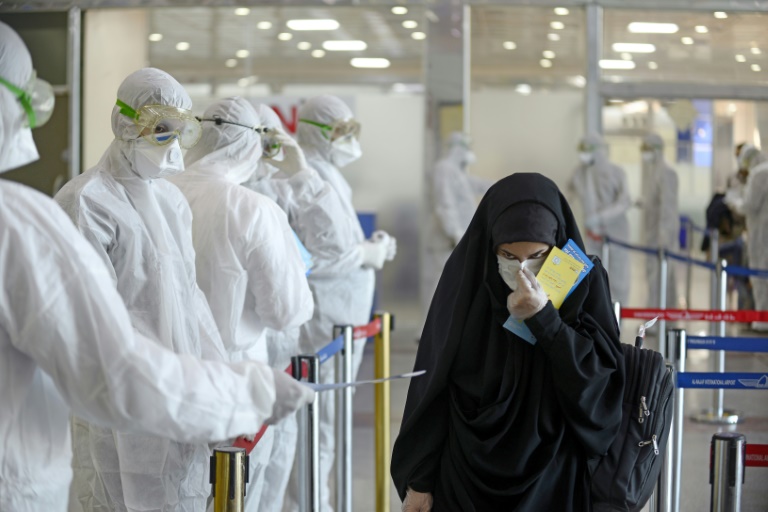WHO: Take coronavirus more seriously
published : 6 Mar 2020 at 12:30
writer: Gary Boyle
ORIGINAL SOURCE/WRITER: AFP

BEIJING: World health officials have warned that countries are not taking the coronavirus crisis seriously enough.
The warning came as outbreaks surged across Europe and in the United States where medical workers sounded worries over a "disturbing" lack of hospital preparedness.
Countries have taken more drastic steps to prevent contagion of a disease that has killed over 3,300 people and infected nearly 100,000 in some 85 nations.
Cases soared in Italy, France, Greece, and Iran, while a cruise ship was held offshore in California to test passengers showing symptoms of the disease -- echoing an episode in Japan several weeks ago that saw hundreds infected on a luxury liner.
The epidemic has wreaked havoc on international business, tourism, sports events, and schools, with almost 300 million students sent home worldwide.
The World Health Organization warned Thursday that a "long list" of countries were not showing "the level of political commitment" needed to "match the level of the threat we all face".
"This is not a drill," WHO chief Tedros Adhanom Ghebreyesus told reporters.
"This epidemic is a threat for every country, rich and poor."
What is needed, he said, is "aggressive preparedness."
Learn from listening
Vocabulary
- aggressive: determined to win or succeed and using forceful action to achieve victory or success - เริ่มต่อสู้ ซึ่งมีความมั่นใจสูง
- commitment: willing to give your time and energy to something that you believe in; a promise or firm decision to do something - การให้คำมั่นสัญญา, การให้คำมั่น, การมอบความไว้วางใจ
- contagion: when something spreads or passes from person to person, so that more and more people are affected - การติดต่อ,การแพร่กระจาย
- disturbing: making you feel extremely worried or upset - ที่ขุ่นเคืองใจ
- drastic: having a very big effect - มีผลกระทบอย่างใหญ่หลวง
- drill: an activity which practises a particular skill or procedure - การฝึกหัด
- echo: to repeat a quality or situation - สะท้อน, หวนกลับ
- episode: an event or set of events that forms part of a longer series but is considered separately - กรณี, ตอน,ฉาก
- havoc: a situation in which there is a lot of damage or destruction, or in which something cannot continue in its normal way because of problems - ความเสียหายอย่างรุนแรง, ความหายนะ
- offshore: happening or existing in the sea, not far from the land - ซึ่งอยู่ห่างจากฝั่ง, ที่อยู่นอกฝั่ง
- outbreak: the sudden start of a disease - การระบาดของโรค
- preparedness: the state of being ready or willing to do something - ความพร้อม, การเตรียมพร้อม
- surge (verb): to move forward together very quickly - เคลื่อนเข้ามา
- threat: a danger - อันตราย
